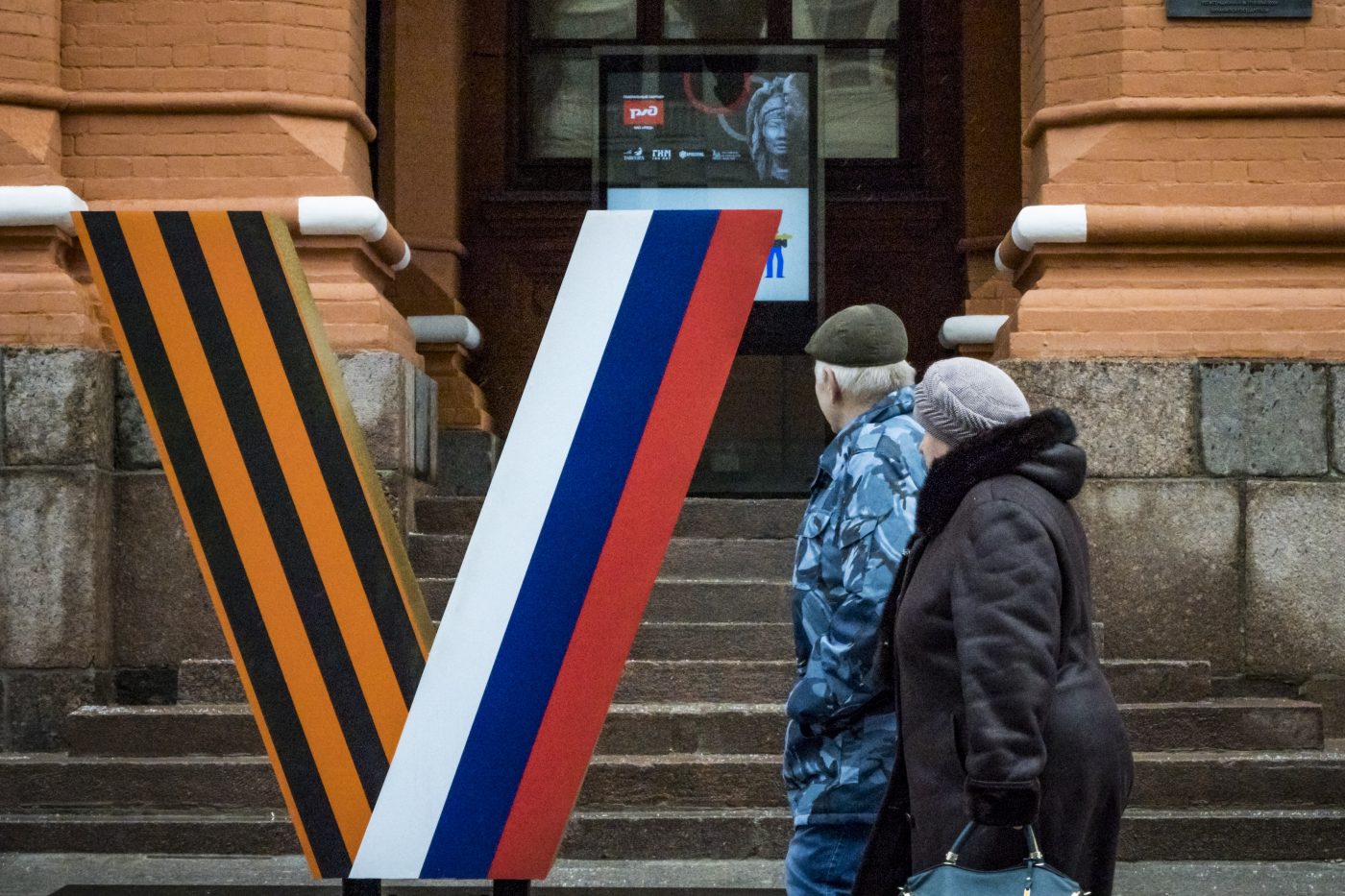Many analysts — this one included — expected the Russian public to be a brake on Vladimir Putin’s ability to plunge his country into war in Ukraine. Despite his best efforts, right up to the start of the full-scale invasion on February 24, 2022, Putin had failed to convince more than about 17 percent of Russians of his idea that Ukrainians and Russians should share a single state, and at the turn of 2022 there was no significant constituency clamoring for violence.
Yes, Russians had rallied powerfully around the flag after the illegal annexation of Crimea in 2014, but that had been a largely bloodless conquest. Even Putin seemed unsure how Russians would react to footage of the wholesale destruction of Ukrainian cities, an anxiety that may have underpinned the initial design of his war — one that would, in his view, bring a swift victory with minimal actual fighting. In the end, it turns out Putin need not have worried. Enough Russians protested the start of the war to necessitate some 15,000 arrests, but the Kremlin effectively smothered the anti-war movement in its infancy, and the Russian street has been remarkably quiet throughout most of the past year.
In truth, the broader Russian public did as much damage to the anti-war movement as the Kremlin did, or perhaps even more. While expressing support for the war declined from some 80 percent in March 2022 to around 70 percent a year later, a shift of such minor magnitude is not the stuff of which revolutions are made. According to data from the Levada Center and Russian Field — not perfect, given the difficulties of survey research in a highly authoritarian regime, but the best that is currently available — opposition to the war remains concentrated among the same constituencies who have most reliably lined up against Putin since the 2011-12 “Bolotnaya” protests that marked the first mass challenge to his legitimacy: in particular, young urbanites who get most of their news from the Internet. As jarring as the war has been for many, it does not appear to have created new anti-Kremlin constituencies.
Public support for this war, however, looks and feels very different from the post-Crimea “rally ’round the flag” in 2014. That groundswell was ripe with positive emotions: For all the wrong reasons, most Russians, including those who had not previously been all that enthusiastic about Putin, were filled with a resounding sense of pride and optimism. That emotional experience did more than support a new relationship between Russians and Putin; it created a sense of togetherness among ordinary Russians themselves. In many ways, of course, it was that sense of pride in shared conquest in 2014 that enabled Putin to renew his imperial crusade in 2022.
But the primary emotion Russians appear to be experiencing now is anxiety. Uncertainty in the future — specifically, the proportion of Russians who say they cannot predict their future more than a couple of months down the road — is at its highest levels since 2001, shortly after Putin first came into power on a promise to sweep away the chaos and uncertainty of the 1990s.
Ordinary Russians are responding to that anxiety in a variety of ways. Many are fleeing, swelling the ranks of a growing community of politically motivated emigres stretching from Mongolia to Manhattan. For these Russians, the struggles of exile are more attractive than whatever prospects their homeland holds. Many more, however, remain in Russia, and for them, the antidote to uncertainty is performative loyalty: to communicate to the regime and to their fellow citizens that they are reliable, “normal,” and trustworthy members of society, and that they accept Russia’s reality as it is, not as they would like it to be.
That habit of performative loyalty has undergirded Putin’s power for years now, but the war — and the draconian restrictions imposed on any public dissent — has given it a much sharper edge. Russians are increasingly returning to the practice of denunciations, “informing” on neighbors, colleagues, classmates, and even passing strangers suspected of harboring anti-war sentiment, often with catastrophic consequences for the subjects of their complaints. This is not the behavior of a community imbued with pride, optimism, and togetherness.
Even as Russians turn on one another, and turn one another in to the state, they are increasingly turning away from the state itself. Surveys by Russian Field show that only a minority of Russians believe what the government tells them about the draft and about casualties, and among the generation of Russians most likely to have to fight in the war, only 18 percent see state-run television as a reliable source of information.
Putin, then, enjoys the support of a population that does not trust him, but that is learning to trust one another even less. For the time being, the balance of that equation works out in Putin’s favor: The best way for Russians to protect themselves against their fellow citizens is to make it clear that they support Putin and the war. The longer the war lasts, however, the riskier that strategy becomes. Anxiety, after all, often breeds resentment.
Europe’s Edge is CEPA’s online journal covering critical topics on the foreign policy docket across Europe and North America. All opinions are those of the author and do not necessarily represent the position or views of the institutions they represent or the Center for European Policy Analysis.





